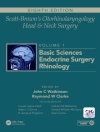New and improved therapies to treat and protect against drug dependence andabuse are urgently needed. In the United States alone about 50 million people regularlysmoke tobacco and another 5 million are addicted to other drugs. In a givenyear, millions of these individuals attemptwith or without medical assistancetoquit using drugs, though relapse remains the norm. Furthermore, each year severalmillion teenagers start smoking and nearly as many take illicit drugs for the firsttime. Research is advancing on promising new means of treating drug addictionusing immunotherapies and sustained-release (depot) medications. The aim of thisresearch is to develop medications that can block or significantly attenuate the psychoactiveeffects of such drugs as cocaine, nicotine, heroin, phencyclidine, andmethamphetamine for weeks or months at a time. This represents a fundamentallynew therapeutic approach that shows promise for treating drug addiction problemsthat were difficult to treat in the past. Despite their potential benefits, however, severalcharacteristics of these new methods pose distinct behavioral, ethical, legal, andsocial challenges that require careful scrutiny. Such issues can be considered uniqueaspects of safety and efficacy that are fundamentally related to the distinct natureand properties of these new types of medications.
Board on Health Promotion and Disease Prevention & Board on Neuroscience and Behavioral Health
New Treatments for Addiction [EPUB ebook]
Behavioral, Ethical, Legal, and Social Questions
New Treatments for Addiction [EPUB ebook]
Behavioral, Ethical, Legal, and Social Questions
Beli ebook ini dan dapatkan 1 lagi GRATIS!
Bahasa Inggris ● Format EPUB ● Halaman 320 ● ISBN 9780309166652 ● Editor Henrick J. Harwood & Tracy G. Myers ● Penerbit National Academies Press ● Diterbitkan 2004 ● Diunduh 3 kali ● Mata uang EUR ● ID 7141994 ● Perlindungan salinan Adobe DRM
Membutuhkan pembaca ebook yang mampu DRM












